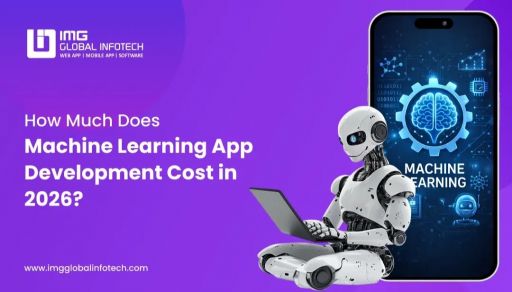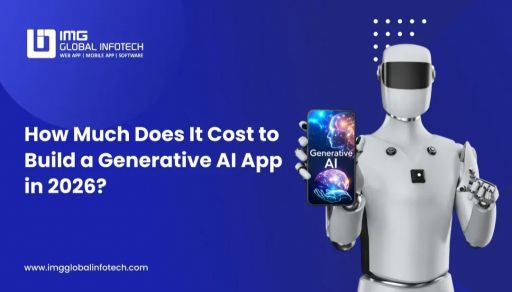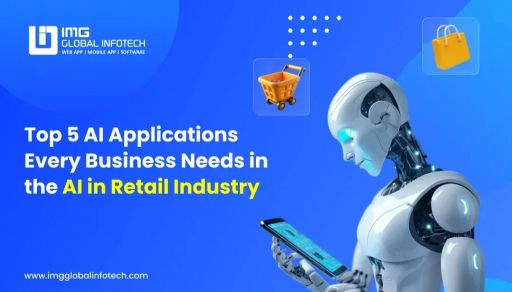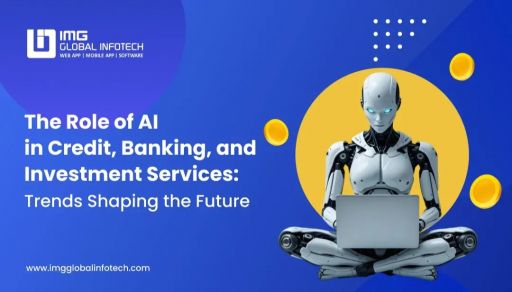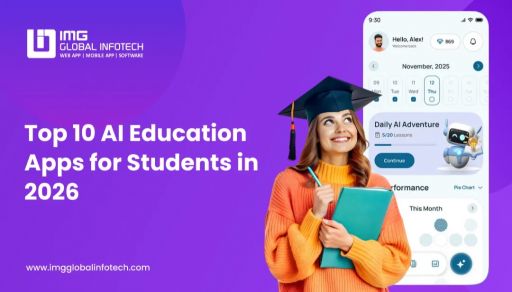10 Ways AI Is Transforming The In Retail Industry In The Middle East
Lokesh Saini
Nov 17, 2025

Retailers are as well positioned as companies in any industry to leverage AI to augment the data-driven analytics that they are already using to improve inventory management, assortment planning, merchandising, marketing, and other business functions of AI in Retail Middle East. For instance, AI-enabled applications can recommend when to reorder or restock merchandise based on projected changing demand and supply velocity, assist in reorganizing inventory on grocery shelf space furnished with perishable goods, and provide relevant personalized marketing offers to consumers that are timely for them and profitable for retailers.
In addition, AI can assist retailers with the complexities of global trade and worker shortages by complementing a human worker's labor with an autonomous digital assistant and customer service in AI in Middle East Retail, where AI can provide human agents contextual answers better than if they searched in knowledge bases on their own in AI Retail Transformation Middle East. Retailers have also begun using AI to recommend the best locations for stores as well as assist online shoppers in selecting apparel that may fit them better, which improves satisfaction rates while reducing costly returns.
10+ Powerful Ways AI Is Shaping the Future of Retail in the UAE
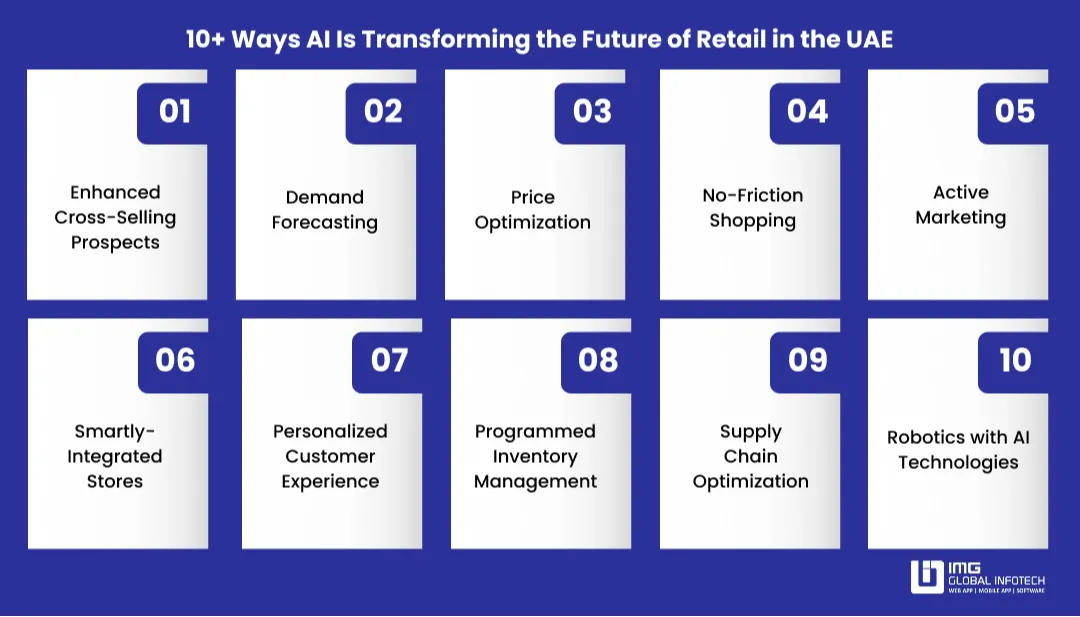
Almost every facet of retail operations, including customer service, inventory control, and even real estate operations, can be impacted by AI.
1. Enhanced Cross-Selling Prospects
Ongoing disruptions to the supply chain due to a multitude of factors (crop failures, strikes by truckers, and geopolitical unrest) have made grocery retailers re-evaluate their fulfillment models and product assortments to satisfy consumer choices. See How AI is transforming retail in the Middle East. Grocers are increasingly going to develop their plans in conjunction with demand forecasting, inventory management, and flow of receipts (inbound check of items received against purchase orders).
2. Demand Forecasting
Retailers can better forecast demand for specific items across geographies by using AI to address demand as it draws on and analyzes data on other items, data from stores with similar demographics, and third-party data, such as weather and income of AI in retail industry across Saudi Arabia,Qatar and UAE. A national pharmacy recently implemented AI to track and forecast demand for a particular vaccination based on national demand trends reported to the federal government.
3. Price Optimization
Retailers can leverage AI to analyze data regarding competitors' prices on similar or identical products, local demographics, and even the effects of advertising and other promotions to inform their decisions on the highest price point they can set an item for without risking losing customers in AI in MENA Retail. Given the reality that most customers would rather shop at only one location, there is typically much more than a single purchase at stake.
If an item is priced too high, some customers may simply abandon all items in the shopping cart and shop somewhere else, whether that be a competitor's store or website, according to the AI for retail in the Middle East. Pricing items too low may significantly reduce margins and, in some cases, devalue the item entirely.
4. No-Friction Shopping
Retailers are combining AI with video and sensor data to do away with point-of-sale areas, allowing customers to pull goods off shelf displays, put items in their shopping baskets, and walk out of the store without waiting in line to check out. By getting rid of the cashier lanes and point-of-sale device, floor space can be utilized for more goods on display for sale in AI in Middle East Retail businesses. One national supermarket chain uses AI to take a visual scan of products and automatically charges customers for products that don't have a readable barcode.
5. Active Marketing
Retailers utilize AI to suggest products to accompany products searched by customers online or placed into their shopping cart based on customer purchase histories and co-purchases by other customers with similar profiles in Retail AI Solutions Middle East. The retail chain that sells cosmetics uses AI to help customers select makeup colors and shades that work best with the customer’s complexion.
Retailers with physical stores can use AI to also help ensure they are offering promotions on slower-moving products, even for a day, while taking promotions off items that are selling well on their own, and do this quickly in AI-powered Retail Solutions Middle East. Retailers also compare the results from store to store (A/B testing) and adjust as needed.
6. Smartly-Integrated Stores
The AI-personalized stores are combined with video camera sensors on shelves; it is important to understand the foot traffic in their stores that can enhance the sales per square foot. This kind of technology can easily identify the products so the customers do not face any kind of trouble in their shopping experience. It can also recommend products as per the customers' preferences and market trends. AI can also help in generating targeted promotions for certain items on mobile devices that can attract customers to their stores as well.
7. Personalized Customer Experience
A department store that offers online and brick-and-mortar locations employs AI to analyze data from various combined data repositories, including their order history, browsing history, and loyalty program, to personalize and improve the relevance of marketing communications in Retail Automation Middle East. A clothing retailer employs AI-powered chatbots to provide more relevant recommendations to online customers or customers on the phone who have initiated a conversation with them about where and how they plan to wear a new coat.
8. Programmed Inventory Management
For retailers the inventory is an extensive element in their business. AI can aid in managing inventory to shuffle items at the right time. For example, it can remind retailers to place dairy items first just because of their expiration session, which can help to minimize the waste of shelves. This process is beneficial for large supermarkets also, where the AI can help users to do multiple replenishments throughout the day as well.
9. Supply Chain Optimization
Due to interruptions in supply chains because of varied weather, geopolitical issues, labor concerns, health issues, and other factors, retailers are dealing with an added challenge to keep the most popular items priced reasonably and in stock with the Best AI solutions for UAE retail industry. One convenience store chain utilized machine learning, a type of AI, to analyze hundreds of factors affecting its supply chain, and hence inventory of items, including the weather, current events, and influencer posts.
10. Robotics with AI Technologies
With facilities like AI video cameras and shelf sensors, retailers can make more informed assumptions about store foot traffic and sales per square foot. It does this by discovering which products customers never stand by, suggesting the retailer swap those products out for merchandise that attracts customers. AI can also help design promotions for specific items and send the promotion to the shoppers' mobile devices near that location in the store. The technology also aids with clustering items together in the store.
Key Benefits of AI for Retail Businesses in the Middle East
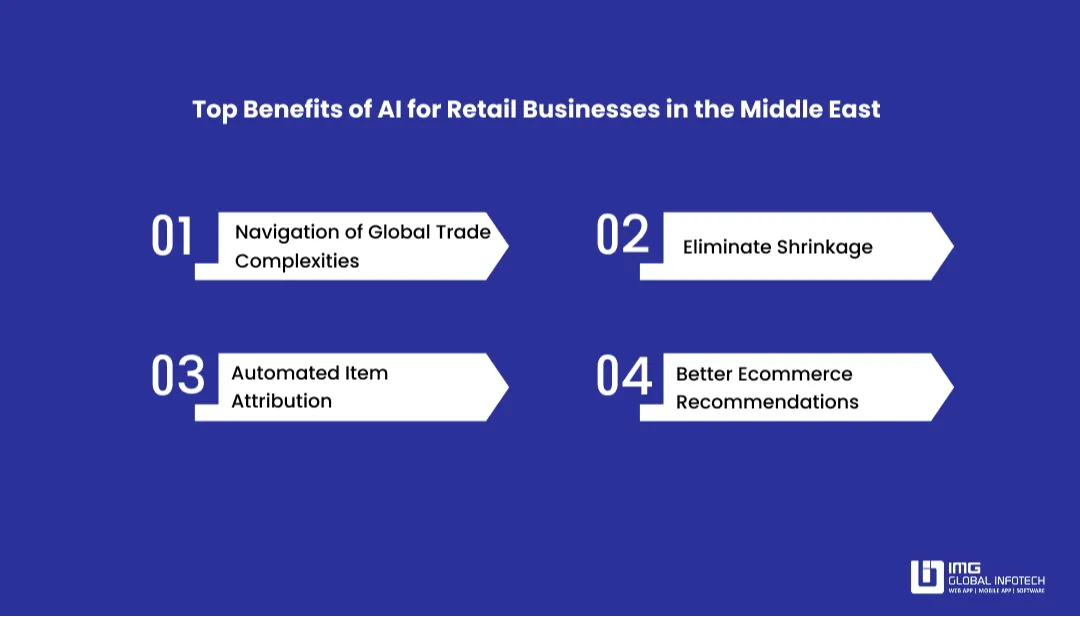
AI can help retailers to eliminate the additional cost that is associated with shrinkage, labor, and waste to maintain the focus on generating higher revenue in their businesses. It can also suggest the best assortment mixes in stores that are based on precise recommendations for online shoppers that also notify the retailers to refill their stock from time to time in their business. Here are some major Benefits of AI in UAE retail companies integrating with AI in the retail businesses as well.
Navigation of Global Trade Complexities
In reaction to trade sanctions and trade measures from around the world, retailers can leverage AI to analyze price and category selection against competitors. They could also use it for “what if” scenario planning to envisage whether or how far they might need to take suppliers, change where they source, and identify alternative methods of transportation.
Eliminate Shrinkage
The National Retail Federation states that retailers in the UAE suffer shrinkage, or shrink, which is a reduction in the inventory of goods from shoplifting, vendor fraud, employee theft, and other reasons not associated with a sale, to the tune of over $110 billion yearly. AI can help retailers, typically with sensors and other technologies at the point of sale, to identify, for example, when customers pick up a romanticized item rather than the less expensive item they scanned or if the cashier intentionally undercharges a customer, which is often called sweethearting.
Automated Item Attribution
Generative AI can be employed by retailers to process, analyze, and summarize product attributes from lengthy and detailed product descriptions provided by manufacturers in the AI in Retail Industry. From the lengthy and sometimes unwieldy product descriptions provided by the manufacturer, Generative AI can identify the most salient product features and create vivid descriptions that resonate with the attributes that drive customer purchasing behavior.
Better Ecommerce Recommendations
AI can rapidly analyze a patron’s complete ordering history to provide more personal cross-sells. For instance, it can posit that a woman ordering sandals also purchases youth-sized crew socks—not to go with the sandals, of course, but because it recognized that the shopper used to buy kids’ sneakers.
AI in UAE Retail: Real-World Success Stories & Case Studies
Currently AI has fluxed with the experimental operation of units in UAE retail businesses for around 2 years ago. Here are some observations from the major tracking retailer implementations in their business as well.
IKEA UAE: {Integration of AR Services with AI Technologies}
Purchasing furniture in the UAE carries inherent risk that can face major challenges in fit and scale until delivery. This uncertainty can drive higher return rates that can increase the cost for retailers. Every problem has its solution and that would be IKEA's reality that will be integrated into AI in retail. The AR technology can enhance the shopping experience so the customers can use the phone cameras to set up the virtual furniture in the actual living spaces before buying in the businesses. This kind of visualization can provide accurate scale and placement options, and along with that, it can reduce purchase anxiety as well.
L’Oréal in Middle East: {Beauty Innovation with AI-Driven Experience}
The cosmetic industry is very diversified in sub-sections that present consistent lighting that is really different from the customers' home environments. Sometimes the product is suitable for customers and they have dissatisfaction. L'Oréal's AI-driven application can easily analyze the skin tone and type through the phone cameras and can provide suitable cosmetic products that customers can easily use on the basis of preferences and individual characteristics as well as their businesses.
Noon.com: {Enhanced Shopping Experience with AI-Integrated Security}
Noon is one of the leading eCommerce platforms in the UAE. With integrations of AI technologies, Noon is setting a high standard for security systems that can enhance customer engagement in their business. Noon also leverages AI in retail pharmacy combined with AI-driven customer engagement that can examine the major retail fraud detection to enhance the customer satisfaction with AI in Retail Industry in the UAE. This technological process ensures that customers can shop securely from their applications. In addition to security phases, Noon can implement AI-powered chatbots that can guide customers in their shopping journey, whether it is resolving queries or suggesting any product in instant support as well.
Chalhoub Group: {AI Forecasting Technology in Luxury Retail Experience}
Sometimes luxury retail faces several inventory challenges, especially in stockout sessions, so it can also create a negative impact on customer relationships. At the same time, overstocking of luxury goods can also decrease the high product values in the market. That's why Chalhoub's AI forecasts the luxury product demand that is very reliable and accurate as compared to traditional forecasting methods. The system automatically manages the limited inventory across the multiple locations to enable the personalized VIP services that are related to customer preferences as well.
AI Adoption in UAE Retail: Key Challenges and How to Overcome Them
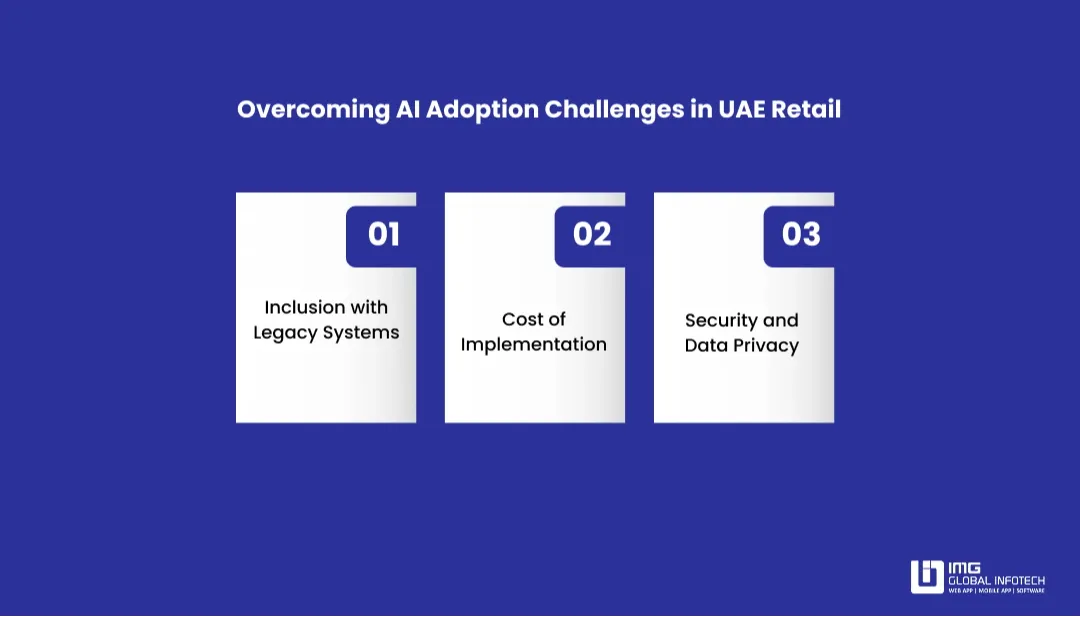
AI is remodeling the UAE retail, but in some cases the implementations can bring several kinds of challenges. In some cases the retailers have to face difficulties in AI integration that can also cost more in implementations in their businesses of AI chatbot development. On the other hand, modular and cloud-based applications will deliver successful outcomes in the businesses. Here are some major obstacles and how the businesses can encounter them as well.
Inclusion with Legacy Systems
Many established retail businesses are based on legacy infrastructure that is apart to manage by the AI-powered systems, which can also create several challenges in retail businesses. These kinds of systems do not respond well to modern tools by Popular AI Apps. The major challenge in this process is improper alignment, which either exists or functions properly in the system as well.
How to Overcome:
Assume we can change the complete infrastructure replacement that rarely succeeds. It is important the retailers can adopt the cloud-based apps or APIs that can handle the interface with legacy systems through an abstraction layer.
Cost of Implementation
Smaller retail organizations need to contend with large upfront expenses. Implementing AI in retail use cases entails investments in software licensing, infrastructure, training, integration, and consulting, which can add up quickly. Organizations operating on narrow margins find it difficult to justify a significant investment in AI, even if they can see the long-term benefits.
How to Overcome:
Best-in-class retailers do not try to implement enterprise-wide solutions immediately; they focus on use cases that target very specific operational problems. If their problem is inventory management, for instance, they will compare cloud-based AI forecasting technology. If they are struggling with the capacity for customer service, they will consider AI chat options for routine inquiries.
Security and Data Privacy
The federal Data Protection Law in the UAE has created strict compliance requirements for its use in retail operations of the ai development company dubai. Retailers are responsible for protecting customer information in addition to regulatory requirements. A security breach results in a combination of fines and reputation damage that jeopardizes customer trust.
Organizations that collect customer data by the use of AI will have even more responsibility. Customers expect their private data to be protected, and there will be little hesitation to switch to another retailer when that protection is not met.
How to Overcome:
Successful retailers are designing a product with privacy and security at the architecture level rather than retrofitting privacy and security in Retail App Like Woolworths. Many are working with data security professionals who understand the nature of using technology and legal/regulatory requirements in the UAE.
Staff training and onboarding are used to address compatibility and emerging compliance standards as regulatory requirements develop. One retail operation conducts quarterly audits on security specifically for AI systems. The costs associated with investment are less than the costs associated with managing outcomes of breaches.
Future of AI in the Middle East Retail Industry
Retailers that focus on ongoing innovation will find other ways to incorporate AI to better their product assortments, marketing programs, in-unit operations, and other services and offerings in the Future of Retail in UAE. Rather than reviewing the same reports and dashboards each day, retail executives will lean on AI to surface the most relevant and pressing issues.
AI combined with advanced edge computing and digital signage will facilitate personalized recommendations directly into the hands of shoppers as they walk through store aisles in AI software development. AI will also improve visual search, where consumers can search on retail websites by uploading a photo of an item—the outfit from a movie star or influencer for example.
Closing Thoughts
Through this blog, we have discussed 10 Ways AI is transforming the in Retail Industry in the Middle East. We have also discussed several other topics in the blog. It mainly includes 10 powerful ways, key benefits, stories & case studies, AI adoption in the UAE, and the future of AI in the middle east retail industry. As a leading AI App Development company, we are always available here to build custom solutions for your business with AI integration that can boost the business growth that can also enhance the profitability in your business as well.
-
 How to Build a Jewelry E-commerce Website Like CaratLane?
How to Build a Jewelry E-commerce Website Like CaratLane?
-
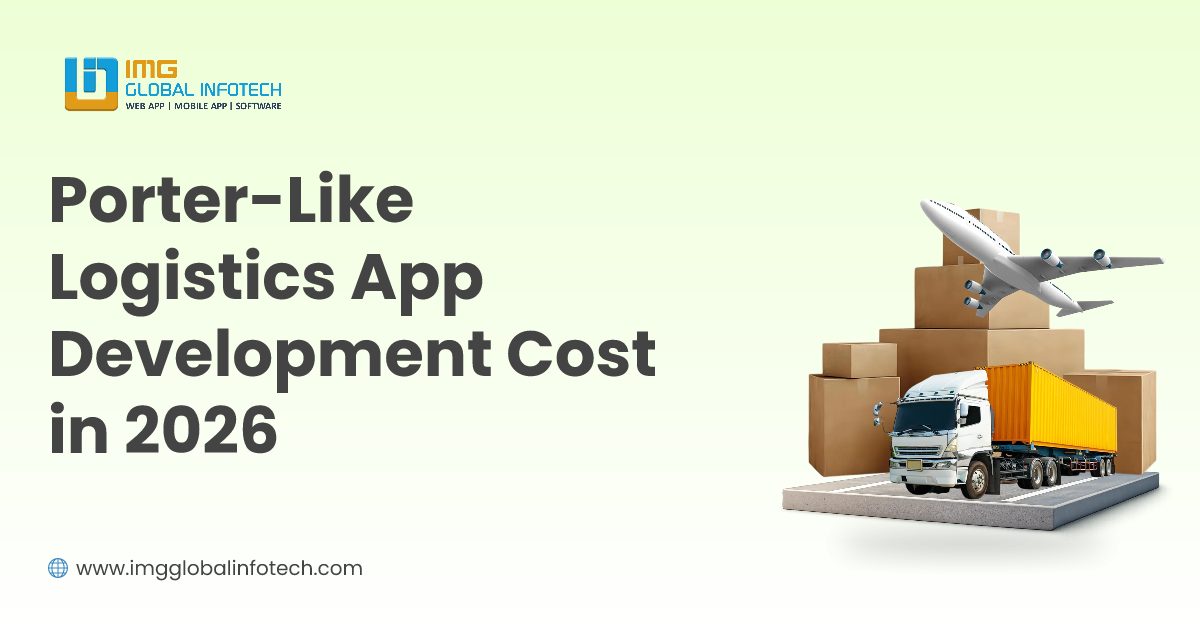 Porter-Like Logistics App Development Cost in 2026
Porter-Like Logistics App Development Cost in 2026
-
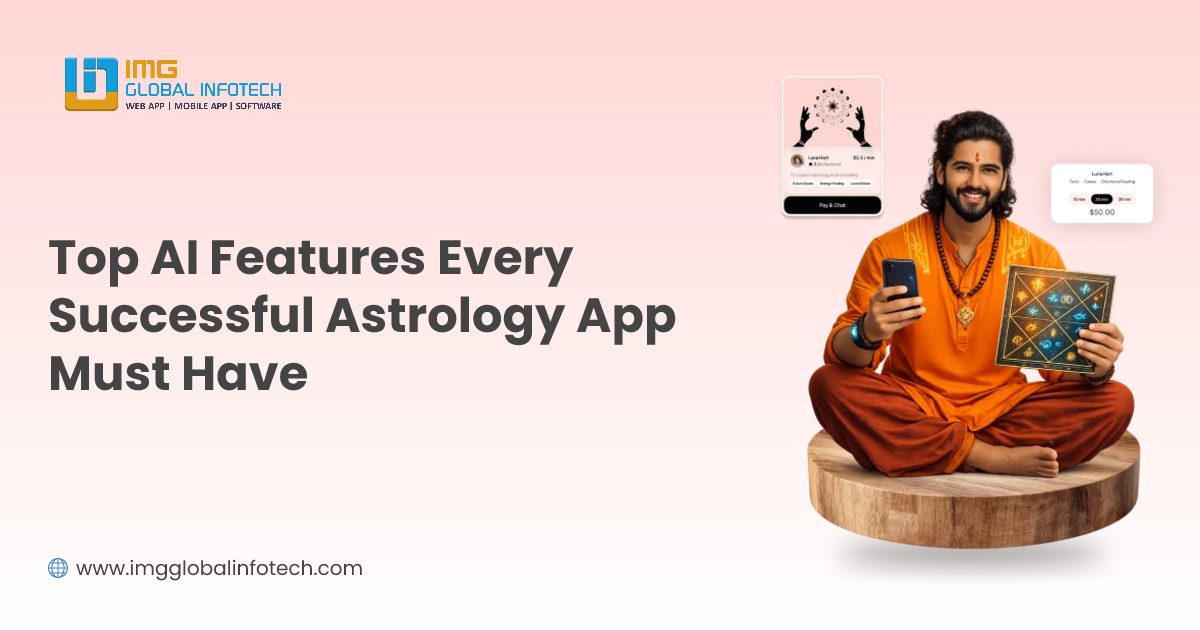 Top AI Features Every Successful Astrology App Must Have
Top AI Features Every Successful Astrology App Must Have
-
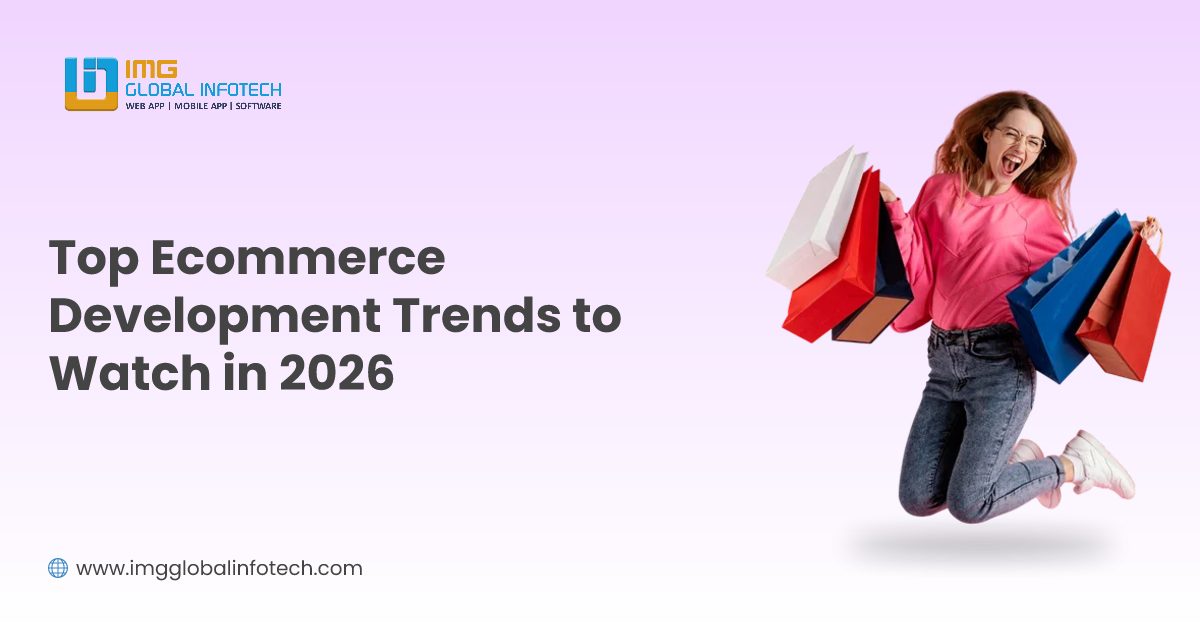 What Are the Top Ecommerce Development Trends to Watch in 2026?
What Are the Top Ecommerce Development Trends to Watch in 2026?
-
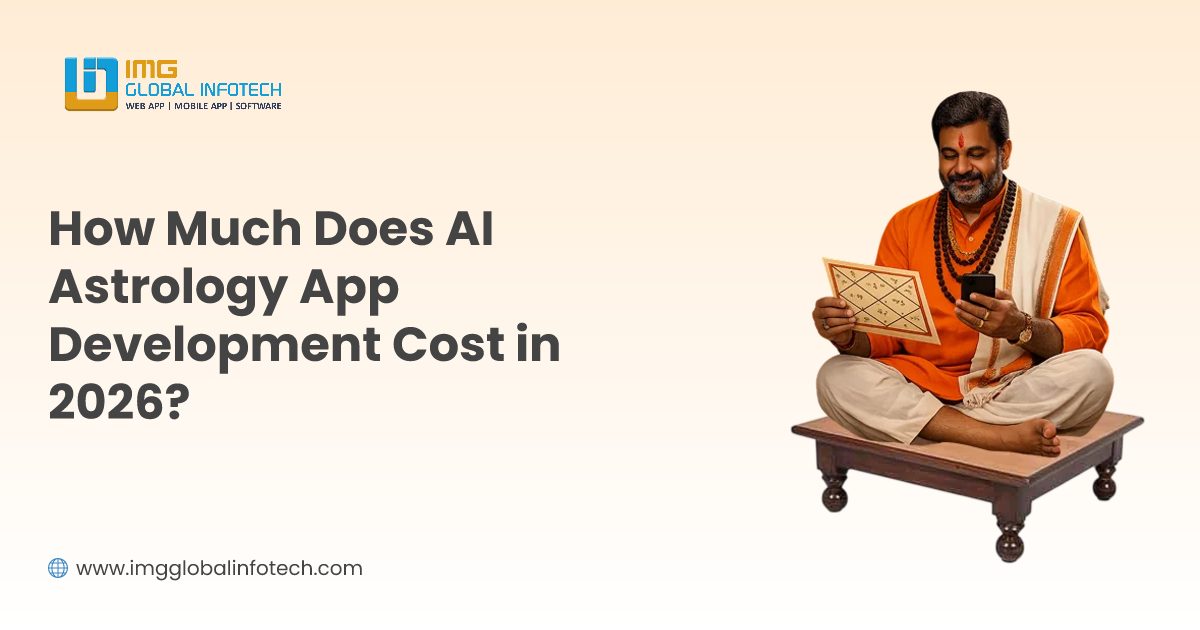 How Much Does AI Astrology App Development Cost in 2026?
How Much Does AI Astrology App Development Cost in 2026?
-
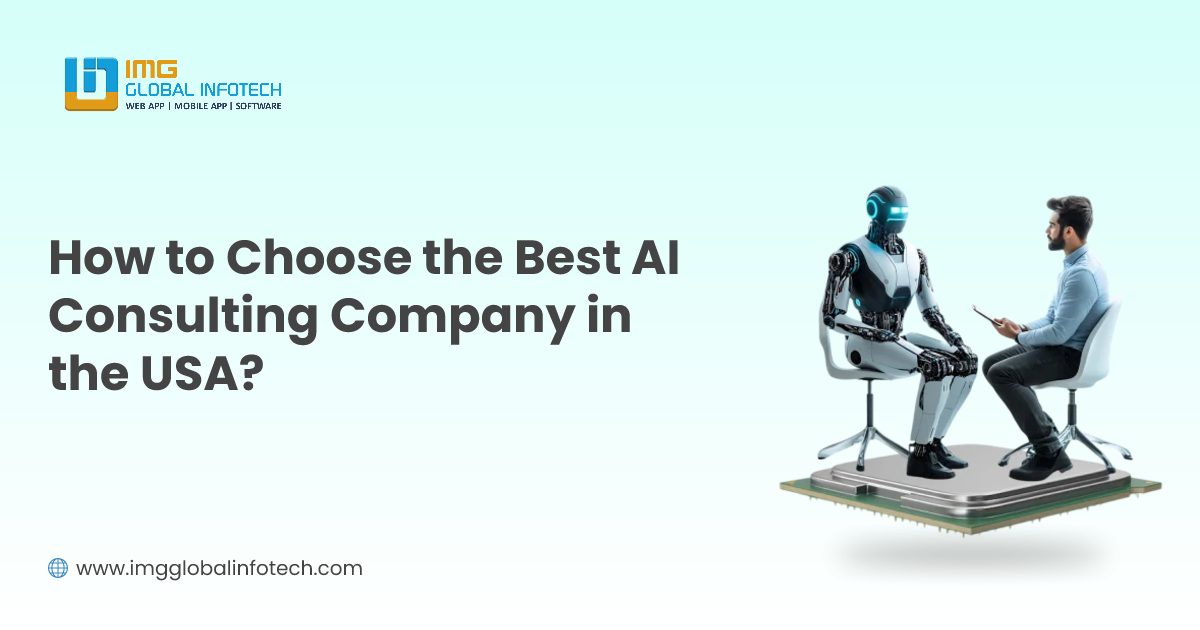 How to Choose the Right AI Consulting Company in the USA?
How to Choose the Right AI Consulting Company in the USA?
Lokesh Kumar is the Digital Marketing Manager & SEO Content Strategist at IMG Global Infotech, a top-rated Web & Mobile App Development Company. With extensive experience in digital marketing, SEO, and content strategy, he specializes in boosting online visibility and driving organic growth for startups, SMEs, and global brands. Lokesh is passionate about creating SEO-friendly, user-centric content that not only ranks but also converts. His deep understanding of digital trends and search algorithms helps businesses thrive in a competitive online space.


